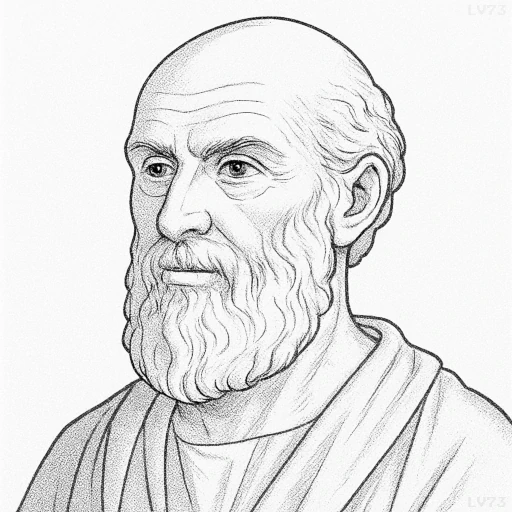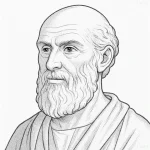“Prayer indeed is good, but while calling on the gods a man should himself lend a hand.”

- c. 460 BC – c. 370 BC
- Greek
- Physician, “Father of Medicine”
table of contents
Quote
“Prayer indeed is good, but while calling on the gods a man should himself lend a hand.”
Explanation
This quote is found within the Hippocratic Corpus, specifically in the work Regimen, and is authentically attributed to Hippocratic thought. It illustrates the pragmatic and rational approach to medicine characteristic of Hippocrates and his followers. While acknowledging the cultural role of religion and prayer in ancient Greece, the quote emphasizes the importance of personal effort and practical action in achieving health.
Hippocrates operated in a world where disease was often attributed to divine punishment or supernatural forces. His teachings marked a turning point by asserting that disease had natural causes and required rational, observable treatment. This quote reflects that transition: prayer is not condemned, but it is seen as insufficient without human initiative. The physician—and the patient—must take responsibility and act with diligence and discipline, rather than relying solely on divine intervention.
In modern life, the message remains powerful across secular and spiritual contexts. Whether one believes in divine help or not, the quote reminds us that hope and faith must be paired with effort—be it in recovering from illness, pursuing personal goals, or overcoming hardship. It champions a mindset where agency, responsibility, and action are central to meaningful change, rather than passive expectation.
Would you like to share your impressions or related stories about this quote in the comments section?


